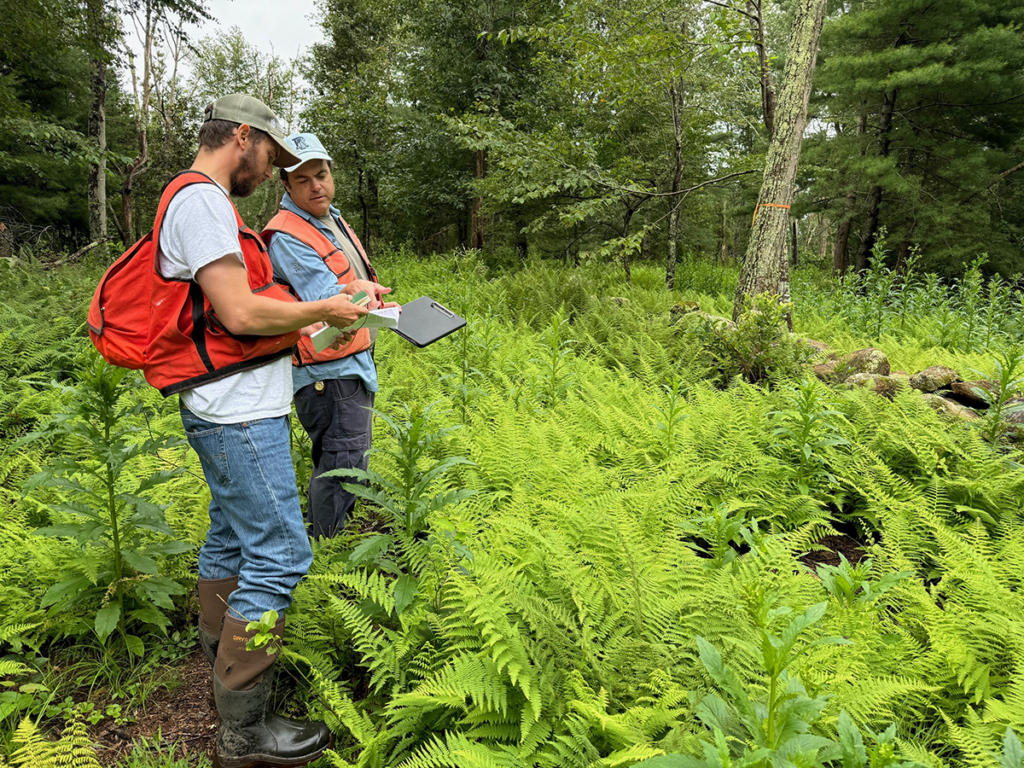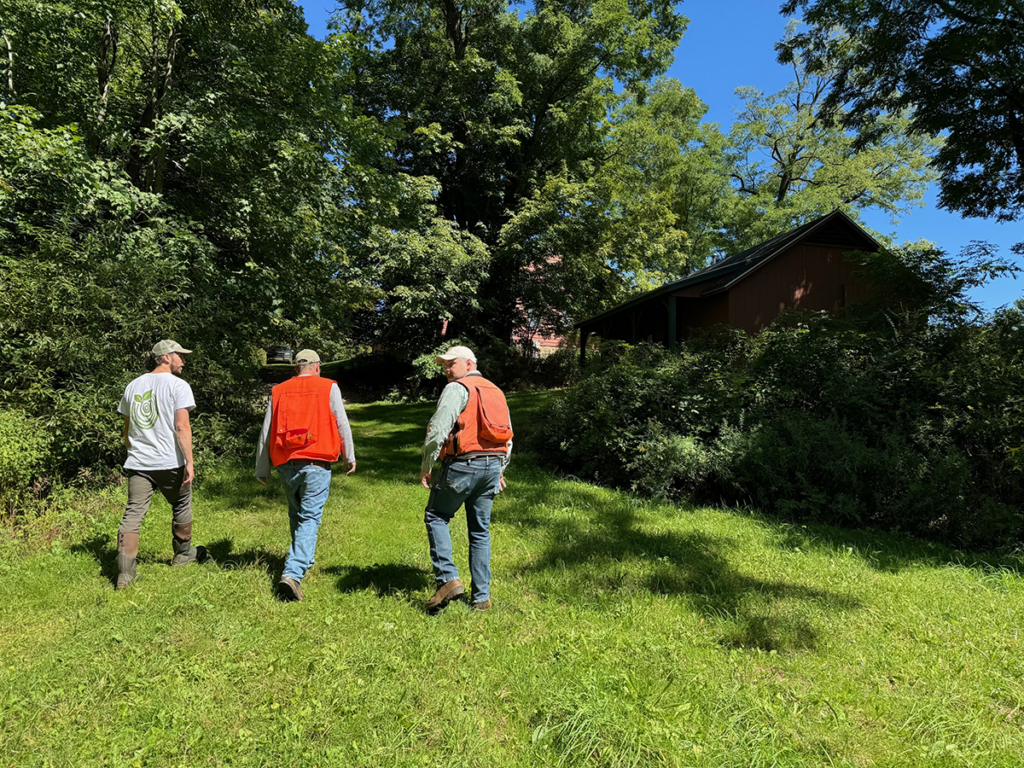New England’s woodland owners can apply for financial support to care for their forested property and increase carbon storage as part of New England Forestry Foundation’s Climate-Smart Commodities project. NEFF now offers two incentive programs for non-commercial landowners of smaller-acreage parcels.
Woodland owners in Connecticut, Rhode Island and Massachusetts can apply for funding through NEFF’s Grow Resilient Oak-Hickory (GROH) Forests Program. In Massachusetts and Connecticut, parcels of 25+ forested acres are eligible; in Rhode Island, ownerships of 10+ forested acres are eligible.
NEFF has partnered with American Forest Foundation (AFF) to enroll landowners in Maine, New Hampshire, Vermont and northwestern Massachusetts in AFF’s Family Forest Carbon Program. Landowners of at least 30 acres are eligible.
AFF and The Nature Conservancy administer the Family Forest Carbon Program, and it is partially funded in New England by a $30 million USDA grant NEFF received in fall 2022.
Program participants will receive incentives for working with a trained forester to store carbon for the long term, for improving the ecological condition and climate adaptation of their forests, and for harvesting the forest products New England needs to build its homes and businesses.
They’ll also be part of something bigger: the team of landowners participating in NEFF’s Climate-Smart Commodities project both make an impact on their lands and also help NEFF develop a program we hope to expand across the landscape. Keep reading to learn more.
The Family Forest Carbon Program (FFCP) is an all-around resource for landowners. When you enroll, you’ll receive payments for implementing forest management practices that increase the carbon sequestered and stored on your land. You’ll also receive an expert consultation from a forester and a forest management plan uniquely designed for your property and your goals.
In Massachusetts and Connecticut, parcels of at least 25 forested acres are eligible; in Rhode Island, which has smaller average parcel sizes, ownerships of at least 10 forested acres are eligible. Woodland owners without an active management plan will be referred to a licensed forester, and work with the forester to create one.
Landowners in Berkshire, Franklin, Hampshire, and Hampden counties in Massachusetts are encouraged to check their eligibility for the Family Forest Carbon Program as funded by NEFF’s Climate-Smart Commodities project before applying for NEFF’s GROH program.
NEFF invites applications from non-commercial forest owners interested in implementing climate-smart forestry on their property who meet the above eligibility requirements. Once NEFF receives your application, you will hear back shortly about next steps.
Please download and fill out the following application form to the best of your knowledge, and then return it to Hayden Stebbins by emailing a digital copy to hstebbins@newenglandforestry.org or mailing a physical copy to:
Hayden Stebbins
39 Grove St.
Turners Falls, MA 01376

Hayden Stebbins, NEFF’s Southern New England Program Forester, joins Christopher Riely, CF, Forestry Specialist and Research Associate at the University of Rhode Island, to tour a forestry demonstration and study site at Hillsdale Preserve in Richmond, Rhode Island. Photo by Lisa Hayden
The 6,300-acre Great Mountain Forest (GMF) in Norfolk, CT, will enroll some of its lands in GROH Forests as the program’s first participant, and will serve as a flagship education, demonstration, and research site for the program. GMF is a nonprofit dedicated to helping communities derive more benefits from their forests while promoting biodiversity and ecosystem resilience.
The Northern Institute of Applied Climate Science has developed a climate-smart forestry curriculum NEFF has paired with in-the-field trainings thus far held at Great Mountain Forest and Yale-Myers Forest. These trainings give foresters in-person experience with the types of stands the GROH Forests program aims to manage, and examples of what these stands should look like post-treatment.
GMF co-hosted the first of the GROH Forests’ small-group forester training programs in October 2024, featuring a day-long workshop and field training. NEFF and GMF are planning a series of educational forums for 2025-2026, including woods walks and workshops for family forest owners.

A forester training at Great Mountain Forest, photo by Lisa Hayden
The program’s forest practices help diversify forests’ age and structure; help forests adapt to pests, diseases, and disturbances; provide more growing space by removing unhealthy trees; and encourage healthy regeneration. Learn more by downloading a PDF of the practices.

The impact of both of NEFF’s smaller-acreage landowner programs extends beyond climate to financial and community benefits. The programs support the people and businesses that own, manage and depend on the region’s forestlands and forest sector. As part of NEFF’s Climate-Smart Commodities work, these programs integrate climate resilience, carbon storage and the ecological health of our forests, while continuing to provide essential wood products and critical ecosystem services like clean air, clean water and diverse wildlife habitat.